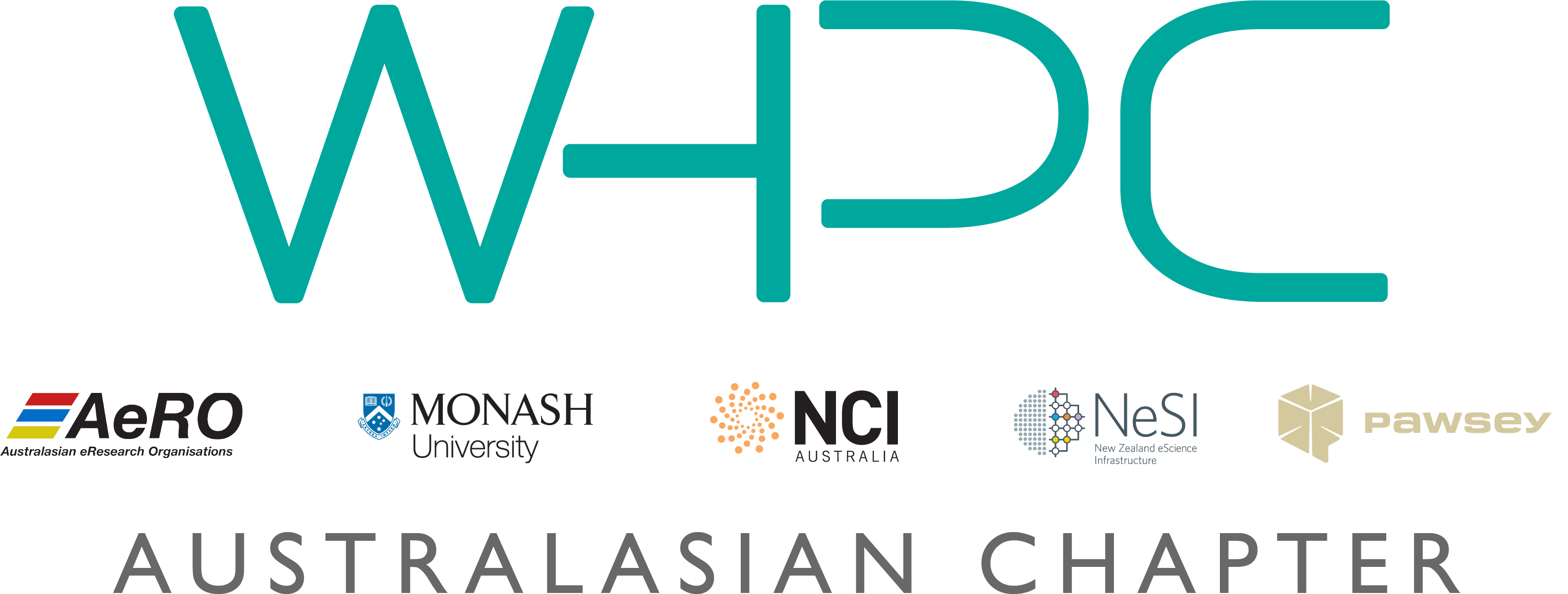Concrete steps for supporting a diverse HPC and eResearch workforce
How can research facilities and their leaders increase diversity within their workforce? A range of opportunities exist across all levels of an organisation, from governance and leadership positions to workplace environments to event-related actions.
Members of the Australasian Chapter of Women in High Performance Computing (WHPCAusNZ) have produced a helpful guide of concrete steps to create and support inclusion of women and other unheard groups within the HPC and eResearch sectors. Senior leaders are encouraged to have a look and consider what you could put into practice or raise for discussion at your organisation. If you have questions or would like advice on implementing these ideas, reach out to WHPCAusNZ.
The full document can be viewed and shared as a PDF here.
Event-related actions
Senior members of eResearch and HPC facilities should take the Panel Pledge.
This avoids #manels (all male panels)
Create a list of 10 people in your field who you could suggest to speak in your place – a quick reference sheet.
Event programme committees should be more diverse (including not just women, but also ECRs, people from outside the global North, gender-diverse people, Indigenous people, people with disabilities, and others)
Events should have diverse speakers and session chairs
Events should be welcoming to diverse attendees
WHPC AusNZ could be on committees of relevant conferences (or act as a consultant) BEFORE programmes are published/as they are built
Could refer people who are interested in being on these committees
Be respectful and open when asking for participation, as individuals may be tapped quite often
You can be honest about ‘box-ticking’ but also describe what the researcher/speaker brings to the conversation/panel/discussion
Make diversity (of presenters and attendees) a KPI for events and include diversity as part of the evaluation of the event (e.g. as part of the participant survey)
Senior members of eResearch and HPC facilities should attend sessions on Diversity and Inclusion at conferences;
Junior staff and women more likely to attend D&I sessions
Senior staff could bring along a shadow junior staffer to give them networking opportunities and see sessions from the Exec perspective
Seeing senior staff at these events makes them easier to approach about diversity and inclusion!
Workplace-related actions
Senior members of eResearch and HPC facilities should be open to opportunities, making change and taking on suggestions for improvemen
Organisations should make targets for gender parity in their governance/boards.
Unconscious bias training for senior members of eResearch and HPC facilities (offered by most universities)
Ally training for senior members of eResearch and HPC facilities (offered by most universities)
Indigenous Cultural Awareness training for senior members of eResearch and HPC facilities (offered by most universities)
eResearch and HPC facilities can adopt a diversity and inclusion policy
Accessible and inclusive job interviews
Avoid school pick-up and drop-off times
Provide simple parking options
Give time before interviews for interviewees to consider the questions (catering to different learning/processing styles)
Writing job descriptions with inclusive language
Considerations for management teams
Is there a Diversity and Inclusion committee at your organisation that can support staff?
Structure helps staff to take ideas up the chain
Provides champions at the Executive level
Allows for great opportunities once it is active
There is evidence for the benefits of diverse and inclusive environments (see Resources)
Keep in mind that a D&I committee will benefit from getting leaders to ‘co-author’ or be involved in strategy writing. It improves accountability and creates ownership.
Encourage specific areas/departments in the organisation to take ownership of actions (e.g. your Property management people might sign up to provide gender-neutral bathroom facilities or your media team might sign up to broaden the ‘promo faces’ used to advertise your organisation.
What is already in place to support Diversity & Inclusion in the workplace?
Existing policies?
Strategic goals?
This allows for managers to support change through impact on organisational level
Demonstrate with actual numbers - ‘what gets measured can be changed’
Who will call out event organising committees for not having diverse speakers or inclusion policies?
The research community should be vocal. This helps organising committees and decision makers.
Diversity is not just women. There are other unheard groups – ECRs/People of Colour /age/diverse genders.
There are constructive ways to call out:
Benefit of the doubt - don’t assume malice
Use resources you can point them to – what if someone just doesn’t know?
Challenge the person’s lens (not the individual)
How do we address non-inclusive behaviours in younger/ECR/new researchers/staff?
Share responsibility for positive and respectful spaces across everyone in the organisation
Anyone can, and should feel able to, call out behaviour that doesn’t feel inclusive
Encourage inclusive language/conduct awareness
Supportive feedback processes built in to training
Clear and enforced rules about appropriate behaviour and language
Other resources
Impact of COVID-19 on women in the STEM workforce report from the Australian Academy of Science
Evidence for the benefits of diverse and inclusive environment
Carpentries Instructor Training builds diversity and inclusion into its curriculu
Review the text in job descriptions or leadership capabilities to remove potentially gendered language (free online tools to do this include https://www.totaljobs.com/insidejob/gender-bias-decoder/ and http://gender-decoder.katmatfield.com/) or companies like Textio can offer a professional solution.

Join the community
The WHPC Australasia Chapter is a collaboration between NeSI, Monash University, Australasian eResearch Organisations (AeRO), NCI Australia, and the Pawsey Supercomputing Centre. There's lots of ways to connect with the community:
Click here to join the WHPCAusNZ Slack channel. Invite others to join as well!
Follow @WHPCAusNZ on Twitter and use #WHPCAusNZ in any tweets you share.
NCI Australia hosts fortnightly Zoom catchups as a friendly, casual and safe space for community members to connect and chat. Click here to register.
Have questions or want more information about the WHPCAusNZ Chapter? Email WHPC@aero.edu.au.
For more information about WHPC and to meet the Organising Committee, visit the WHPCAusNZ website.





